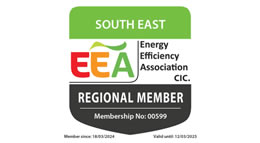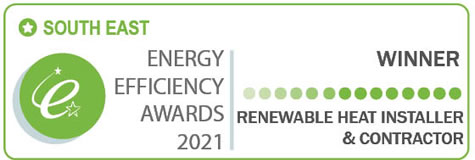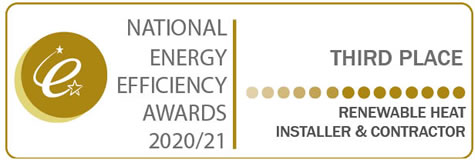Net Zero and UK Energy Legislation
As part of the roadmap to reach net zero by 2050, the UK government has launched energy regulations to cut emissions and make businesses more energy efficient.
Compliance with these regulations is mandatory for qualifying businesses.
Does my business qualify for ESOS and/or SECR?
Via strategic partners, OHM Energy Solutions has helped organisations across the country go beyond compliance to make carbon and financial savings.
We offer access to a blend of funding to support assessments and energy efficiency measures, such as government grants and finance options.
SECR (Streamlined Energy and Carbon Reporting)
Overview
The SECR (Streamlined Energy and Carbon Reporting) legislation is a UK initiative aimed at improving the transparency of energy and carbon data among businesses. Introduced in April 2019, SECR requires large companies to report on their energy use, greenhouse gas (GHG) emissions, and energy efficiency actions.
Key Requirements
- Who Needs to Comply: Large UK companies, defined by two or more of the following criteria:
- More than 250 employees.
- An annual turnover greater than £36 million.
- An annual balance sheet total exceeding £18 million.
- Reporting Requirements:
- Total energy use (electricity, gas, and transport).
- GHG emissions associated with energy use.
- At least one intensity ratio (e.g., emissions per unit of turnover or production).
- Details of energy efficiency actions taken during the reporting period.
- Comparative figures from the previous year.
- Where to Report: Information is included in the Directors’ Report section of the company’s annual accounts.
Objectives
- Encourage energy efficiency.
- Reduce carbon emissions.
- Improve transparency and accountability in energy use and emissions.
ESOS (Energy Savings Opportunity Scheme)
Overview
ESOS is a mandatory energy assessment and energy-saving identification scheme for large organizations in the UK. Established in response to the EU Energy Efficiency Directive, ESOS aims to help businesses identify opportunities to improve energy efficiency and reduce costs.
Key Requirements
- Who Needs to Comply: Large UK organizations, defined as:
- Having 250 or more employees.
- Annual turnover in excess of €50 million (approximately £44 million) and an annual balance sheet total in excess of €43 million (approximately £38 million).
- Compliance Cycle: Every four years.
- Assessment Requirements:
- Conduct energy audits across buildings, industrial processes, and transport.
- Identify cost-effective energy-saving measures.
- Use qualified lead assessors to carry out or review the audits.
- Submit a compliance notification to the Environment Agency.
Objectives
- Identify energy-saving opportunities.
- Reduce overall energy consumption.
- Promote sustainability within businesses.
MEES (Minimum Energy Efficiency Standards)
Overview
MEES (Minimum Energy Efficiency Standards) are regulations in the UK designed to improve the energy efficiency of buildings. Effective from April 2018, these standards make it illegal for landlords to grant a new lease or renew an existing lease on properties that do not meet minimum energy efficiency requirements.
Key Requirements
- Who Needs to Comply: Landlords of privately rented properties in England and Wales.
- Minimum Standard: Properties must have an Energy Performance Certificate (EPC) rating of E or higher.
- Scope:
- Applies to both domestic and non-domestic properties.
- From April 2023, the standards apply to all existing leases as well.
- Exemptions:
- If the landlord can demonstrate that all possible cost-effective energy efficiency improvements have been made.
- If certain improvements would devalue the property by more than 5%.
- If the property is not eligible for an EPC.
Objectives
- Improve the energy efficiency of the rental property stock.
- Reduce carbon emissions associated with energy use in buildings.
- Encourage property owners to invest in energy efficiency improvements.
Conclusion
SECR, ESOS, and MEES are all part of the UK’s broader strategy to promote energy efficiency and reduce carbon emissions. While SECR and ESOS focus on reporting and identifying energy savings opportunities for businesses, MEES targets the rental property market to ensure that buildings meet minimum energy performance standards. Together, these regulations aim to create a more sustainable and energy-efficient economy.
SPEAK TO AN ENERGY COMPLIANCE EXPERT








